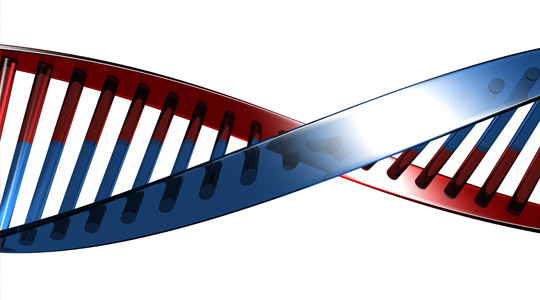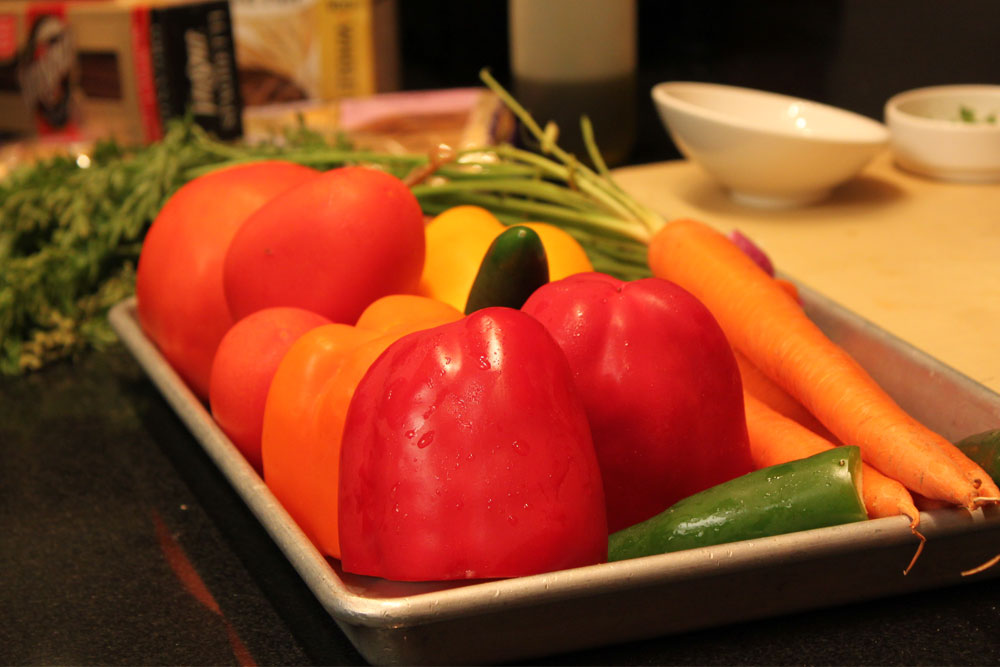
Reducing Food Waste in Foodservice
October 16, 2018 by Doreen Garelick, Dietetic Intern
Our intern Doreen attended a food waste summit for restaurants and compiled these tips to help food service operators redirect…
Nutrition 101, SPE Advisors
December 14, 2012

Author and WebMD blogger Dr. Pamela Peeke writes on how eating the right food can physically alter your genes for the better.
Most people recall with a bit of eye-rolling that frequent mealtime parental directive to “eat your vegetables”. Little did we know that years later, those daily entreaties would prove to be life-saving. The new news is that the latest science shows that food can actually alter your genes and send messages to the rest of the body, as well as affect the quality and quantity of your lifespan. How is this so?
Back in the 1990’s, scientists began to realize that DNA was not necessarily destiny as it related to common conditions such as heart disease, diabetes and cancer. Lifestyle habits and environmental influences became recognized as having a potent capacity to either activate or silence genes.
This was ground-breaking news and a game changer in the field of health and wellness where the new message transformed from one of despair over one’s genetic endowment to one of empowerment -- choose a healthy lifestyle, alter genes positively and as a result, optimize your ability to decrease disease and disability. This revolutionary science was the product of years of work by dedicated scientists at the Human Epigenome Project, a public/private collaboration by members of the multinational Human Epigenome Consortium.

The genome comprises the entire load of our hereditary information, and is packaged in our DNA which contains countless stretches of genes that are either fairly immutable (e.g., height, eye color) or are flexible (e.g., you have the potential to become obese or diabetic, or develop heart disease). For years geneticists have concerned themselves with what is happening inside the gene to affect our lives. The epigenome involves what is going on “epi” around the “gene” to influence its expression.
Surrounding each gene are proteins called histones. New research has revealed that histones are actually the script writers for the gene, monitoring your actions, wrapping around each gene and writing a script of instructions for it to follow. Histones are influenced by every thought (toxic stress vs calm meditation), mouthful (junk food vs healthy food) and step (couch potato vs regular walker) we take. Each action causes the histones to alter how that gene will “speak” to the rest of the body (genetic expression). Positive, productive changes are induced through a process called methylation in which methyl (CH3) groups are added to the DNA by some action you choose to do (for example, eating broccoli instead of a cheeseburger). This results in either a partial or complete quieting of a gene that would normally have left you with a high risk for a negative health outcome, such as cancer, for instance.
Don’t worry too much about the science details. Just remember that methyl groups are your new best friend and you need to do whatever it takes to keep methylating your genes. Which brings us to why everyone needs to focus on Sanitas Per Escam (SPE), or “health through food”.

Not surprisingly, methyl donors are certainly not found in refined and processed food products. Rather, they’re richly represented in whole foods. Here’s a sampling:
|
Nutrient |
Food Origin |
|
Methionine |
Sesame seeds, brazil nuts, fish, peppers, spinach |
|
Folic Acid |
Leafy vegetables, sunflower seeds, baker's yeast, liver |
|
Vitamin B12 |
Meat, liver, shellfish, milk |
|
Vitamin B6 |
Meats, whole grain products, vegetables, nuts |
|
Choline |
Egg yolks, liver, soy, cooked beef, chicken, veal and turkey |
|
Betaine |
Wheat, spinach, shellfish, and sugar beets |
|
Resveratrol |
Red wine |
|
Genistein |
Soy, soy products |
|
Sulforaphane |
Broccoli |
|
Butyrate |
A compound produced in the intestine when dietary fiber is fermented |
|
Diallyl sulphide (DADS) |
Garlic |
This new science helps you reframe your entire relationship with food. Sure, you’ll be getting wonderful vitamins, minerals and other nutrients, as well as water and fiber. Yes, the lean protein is great to build and maintain your muscles. But now, as you shop for groceries, suddenly there’s another extraordinary benefit--- you’re making your histones happy, producing gifted genes that lead to lively longevity. This is SPE in action!
Another side benefit to living the SPE way is to fall in love with cooking. You cannot rely upon dashboard dining and grab ‘n go junk food for your sustenance if you want happy histones. Consuming processed food leads to self-destructive genetic expression. Instead, hop back into the kitchen and make room for three bean soups, colorful salads, and savory meats and fish. Whether vegetarian or flexitarian, prepare your foods with loving care and envision your genes directing a stronger immune system, as well as better blood sugar and cholesterol control.
Further, if you add moderate regular physical activity, like walking, you’ll further quiet destructive genes. Research has shown that simply walking an accrued 30-45 minutes per day can dampen the most powerful obesity gene in humans by 40%. Add healthy nutrition and suddenly DNA is no longer destiny. Your lifestyle choices are. Remember that:
Genetics may load the gun, but environment and lifestyle pull the (epigenetic) trigger.
Indeed, you are what you eat…with an epigenetic twist. Make the greens and genes connection. Live a life of health through food, keep your histones happy, and your genes on a mission of wellness. Bon appetit!

October 16, 2018 by Doreen Garelick, Dietetic Intern
Our intern Doreen attended a food waste summit for restaurants and compiled these tips to help food service operators redirect food waste from landfills.
Nutrition 101

Nutrition 101
September 26, 2018 by Doreen Garelick, Dietetic Intern
Ever notice headlines about rapid weightloss? Dietetic Intern Doreen Garelick looks deeper into a recent eye-catching headline to see if there's any truth behind it.
Connect
 Follow us on Twitter
Follow us on Twitter Friend us on Facebook
Friend us on Facebook Follow us on Pinterest
Follow us on Pinterest Follow us on Instagram
Follow us on Instagram Read our Blog
Read our Blog Watch videos on YouTube
Watch videos on YouTube Watch videos on Vimeo
Watch videos on Vimeo Connect with us on Linkedin
Connect with us on Linkedin Find us on Foursquare
Find us on Foursquare
Tweets by @SPEcertifiedBlog Search
Categories
SPE Certified Newsletter
Sign up for news on the latest SPE-certified venues, events and SPE updates.
We will never share your personal information with a third party.